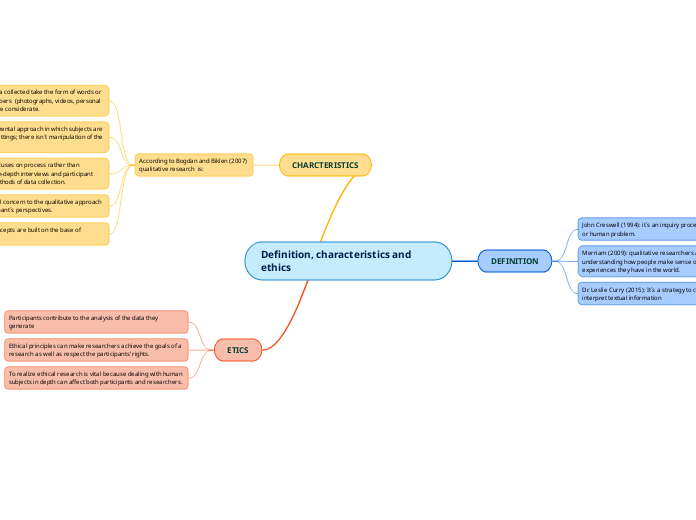Definition, characteristics and ethics
DEFINITION
John Creswell (1994): it´s an inquiry process to explore a social or human problem.
Merriam (2009): qualitative researchers are interested in understanding how people make sense of their world and the experiences they have in the world.
Dr. Leslie Curry (2015): It´s a strategy to collect, organize and interpret textual information
CHARCTERISTICS
According to Bogdan and Biklen (2007)
qualitative research is:
Descriptive data: the data collected take the form of words or pictures rather than numbers (photographs, videos, personal documents). All details are considerate.
Naturalistic: a no experimental approach in which subjects are studied in their natural settings; there isn´t manipulation of the environment
Concern with process: focuses on process rather than outcomes; focus group, in-depth interviews and participant observation are main methods of data collection.
Meaning: it is of essential concern to the qualitative approach and it is based on participant´s perspectives.
Inductive: theories or concepts are built on the base of gathering data.
ETICS
Participants contribute to the analysis of the data they generate
Ethical principles can make researchers achieve the goals of a research as well as respect the participants’ rights.
To realize ethical research is vital because dealing with human subjects in depth can affect both participants and researchers.
